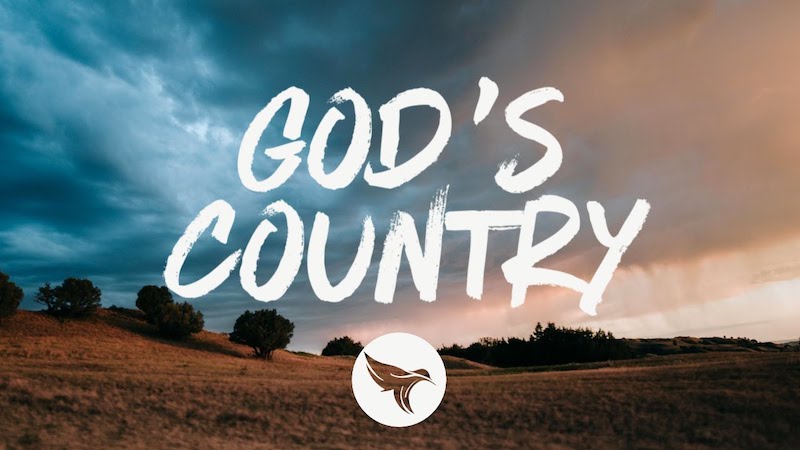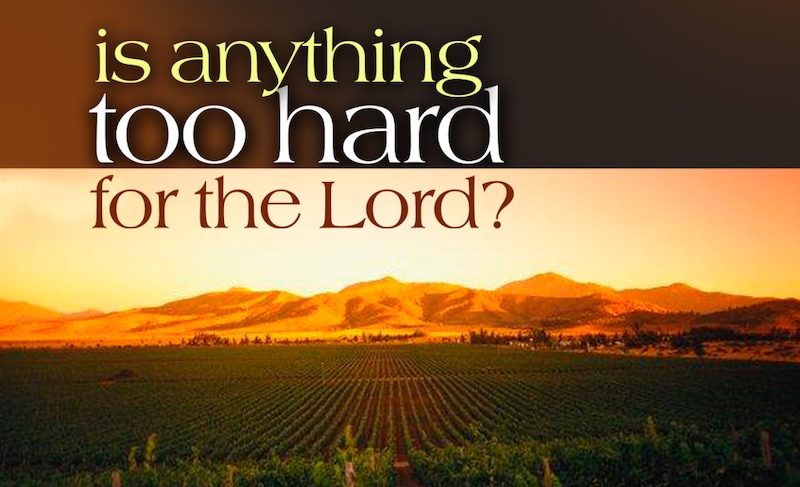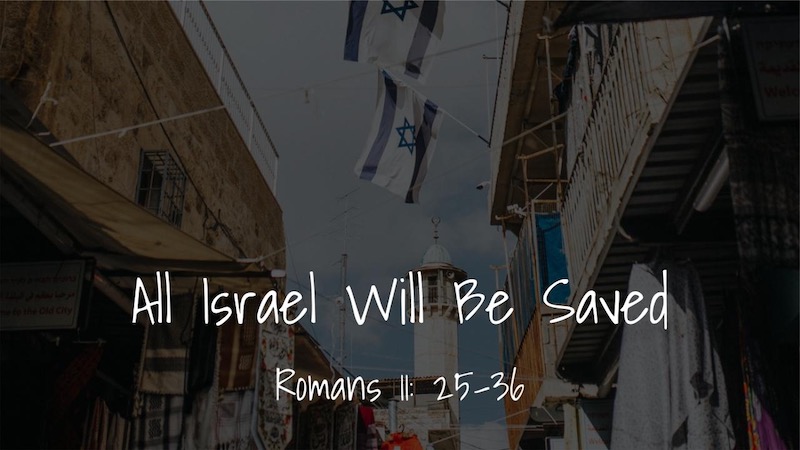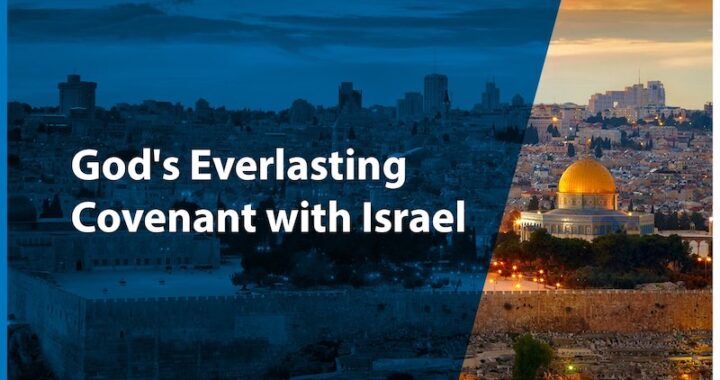As we enter the fourth (or fifth) month of living with the global pandemic of the Coronavirus, many nations around the world are beginning to ease back into normal everyday activities, however at the same time, we are realizing that it will take weeks, months, or even years to actually start living with the freedoms we all once enjoyed. Our lives and our livelihoods for the most part have been forever changed.
Throughout the past few weeks I have been contemplating the best path forward for myself in light of the current situation in Israel and globally. In talking with family and friends in the country of my birth, the United States, I have been repeatedly asked if I would now return to the US because of the current situation. I must admit that part of me desires to take this opportunity to go back to the land from where I have come. In various ways, life in the US is much easier and financially less stressful (generally speaking). During this process of talking to others, considering the options, and praying to God about how to go forward I have been reminded of why I originally immigrated to Israel thirteen years ago. This week’s Torah Portion highlights the very reason I came to Israel.
Growing up in the United States, and being Jewish, I would always gravitate to news relating to Israel. The talks of peace treaties between Israel and the Palestinians would grab my intention, however at the same time, I also knew that any peace treaty that governments proposed involving Israel would never last because politicians generally do not read the Bible.
Ownership of The Land
The Land of Israel is a unique piece of real estate from all the lands and nations on this earth. As we finish reading the last three chapters in the book of Leviticus in this week’s Torah Portion, we are reminded of a simple truth regarding the Land of Israel:
The land, moreover, shall not be sold permanently, for the land is Mine; for you are but aliens and sojourners with Me. – Leviticus 25:23
God Himself stated clearly in the above verse that the Land belongs to Him. The Israelites (the Jewish people) who have been given the Land of Israel are considered as “aliens” or foreigners with the reality that they are dwelling in the Land with the LORD.

In light of the truth that the Land of Israel first and foremost belongs to the LORD, every discussion regarding who is the rightful owner of this territory, the Jews or the Palestinians, must be undergirded by the fact that the Land belongs to God. All the earth belongs to the LORD, however, God has uniquely set apart the Land of Israel from all other lands. It is ultimately because of the choice of God to set apart the Land of Israel for His people Israel that there is a continual struggle for every square millimeter of this Land.
Redemption of The Land
Leaving politics aside, God uniquely gave this land to the Israelites and commanded that the land be apportioned to the various tribes of Israel (Joshua 1). Once the Israelites possessed the Land, they were never to sell the portion of land which they acquired.
The Land of Israel was to stay in possession of the people of Israel, however, if any of the Israelites ever became desperate enough to sell their piece of property, it was only to be sold within the family so as to preserve the inheritance which God gave to Israel. This point is emphasized in Leviticus chapter twenty-five and summarized in the following two verses:
Thus for every piece of your property, you are to provide for the redemption of the land. If a fellow countryman of yours becomes so poor he has to sell part of his property, then his nearest kinsman is to come and buy back what his relative has sold. – Leviticus 25:24-25
The person who was first in line to buy a piece of property in the Land of Israel, according to the word of the LORD, was the “nearest kinsman” to the person selling the property. This phrase in Hebrew is: גואלו הקרוב – Go’a’lo Ha’Karov and is literally translated as “his redeemer who is closest.” Buying the land was considered an act of redemption and the buyer, the closest family member, acted as a redeemer.
Although the Land belongs to God, possession of the Land of Israel permanently belongs to the people of Israel and God provided a safeguard against poverty when certain Israelites would have to sell their land. In fact, God even established a unique period of cancelling debts every fifty years (the year of Jubilee) when all property in the Land would revert back to its original owners to protect against excessive poverty (Lev. 25:10).
There are several examples of the practice of redeeming the Land in the Bible and we will look at one such example found in the book of Jeremiah. The whole chapter of Jeremiah thirty-two details this redemptive event but I will summarize it here for the sake of time and space.
Jeremiah the Redeemer
The year was 587 BCE and the Babylonians had surrounded Jerusalem. The city would ultimately fall into the hands of the Babylonians and Jeremiah was a lone voice who rightly proclaimed the events to come. It was as a result of Jeremiah prophesying the destruction of the city and the captivity of the people that Zedekiah the King of Judah placed Jeremiah in prison (Jer. 32:1-5).
Prison walls cannot stop the word of God from going forth. It was in this place of confinement that the word of God came again to Jeremiah instructing him to redeem a piece of property owned by his cousin, Hanamel. Jeremiah obeyed the word of the LORD and purchased the field from his cousin when he offered him the right of redemption and the matter was finalized with a transfer of funds and a signed deed of purchase (Jer. 32:6-12). We know that the LORD instructed Jeremiah to make this purchase as a prophetic picture:
And I commanded Baruch in their presence, saying, ‘Thus says the LORD of hosts, the God of Israel, “Take these deeds, this sealed deed of purchase and this open deed, and put them in an earthenware jar, that they may last a long time.” For thus says the LORD of hosts, the God of Israel, “Houses and fields and vineyards will again be bought in this land.”’ – Jer. 32:13-15
Through Jeremiah’s redemptive act of purchasing a field from his cousin, God was making a prophetic statement that fields and vineyards would again be bought in the Land of Israel. Although the city of Jerusalem and the Land of Judah were about to be taken when the people were led into captivity, they would return and they would possess the Land once again.
Jeremiah’s Prayer
The year that Jeremiah purchased the field (while being in prison) marked the fortieth year of his ministry as a prophet. Jeremiah had been hearing the word of the LORD and communicating it to the people of Judah and to the nations for forty years. Jeremiah had become familiar with hearing the voice of the LORD during those long years and God’s word proved true to him again and again.
Immediately after Jeremiah redeemed the piece of property from his cousin he prayed to the LORD as he seemed to be searching for confirmation for what just transpired. This beautiful and intimate prayer of Jeremiah is recorded for us in this same chapter:
After I had given the deed of purchase to Baruch the son of Neriah, then I prayed to the LORD, saying, ‘Ah Lord GOD! Behold, You have made the heavens and the earth by Your great power and by Your outstretched arm! Nothing is too difficult for You, who shows lovingkindness to thousands, but repays the iniquity of fathers into the bosom of their children after them, O great and mighty God. The LORD of hosts is His name; great in counsel and mighty in deed, whose eyes are open to all the ways of the sons of men, giving to everyone according to his ways and according to the fruit of his deeds; who has set signs and wonders in the land of Egypt, and even to this day both in Israel and among mankind; and You have made a name for Yourself, as at this day. You brought Your people Israel out of the land of Egypt with signs and with wonders, and with a strong hand and with an outstretched arm and with great terror; and gave them this land, which You swore to their forefathers to give them, a land flowing with milk and honey. They came in and took possession of it, but they did not obey Your voice or walk in Your law; they have done nothing of all that You commanded them to do; therefore You have made all this calamity come upon them. Behold, the siege ramps have reached the city to take it; and the city is given into the hand of the Chaldeans who fight against it, because of the sword, the famine and the pestilence; and what You have spoken has come to pass; and behold, You see it. You have said to me, O Lord GOD, “Buy for yourself the field with money and call in witnesses”—although the city is given into the hand of the Chaldeans.’ – Jer. 32:16-25
Throughout this prayer Jeremiah recounts the power of Almighty God and reaffirms that he believes that “Nothing is too difficult for You,” however at the same time, Jeremiah is wondering if God will really fulfill this word of prophecy and bring the people back to resettle the Land.
Jeremiah’s Question
The skepticism in Jeremiah’s voice is hard to hear as we read the record of his prayer in black and white, however, there is one clear linguistic indicator in the Hebrew language that reveals to us Jeremiah’s heart in this prayer. He began his prayer in verse seventeen with the phrase אהה אדוני יהוה – Aha Adonai Elohim – Ah Lord GOD. The first word in this phrase as he cried out to God is the word אהה – Aha and is translated as “Ah” in English. What does this little three-letter word in Hebrew and one-syllable word in English tell us about Jeremiah’s state of being at that time?
If this was the only time that this word was used by Jeremiah than it would be difficult to comprehend exactly what Jeremiah was thinking, however, this word אהה – Aha appears three other times in the book of Jeremiah. The following verses show the previous uses of this same word by the prophet Jeremiah:
Then I said, “Alas, Lord GOD! Behold, I do not know how to speak, because I am a youth.” – Jer. 1:6
Then I said, “Ah, Lord GOD! Surely You have utterly deceived this people and Jerusalem, saying, ‘You will have peace’; whereas a sword touches the throat.” – Jer. 4:10
But, “Ah, Lord GOD!” I said, “Look, the prophets are telling them, ‘You will not see the sword nor will you have famine, but I will give you lasting peace in this place.’” – Jer. 14:13
In every occurrence that we see this word אהה – Aha in the Hebrew throughout the book of Jeremiah, it is used in a desperate manner by the prophet who is crying out to the “Lord GOD” with a questioning tone, trying to discern what is true, and wondering about the fulfillment of God’s word to him. Therefore, we can assume that in the same manner Jeremiah was pouring out his heart to God once again in chapter thirty-two as he questioned if his prophetic act of redeeming a field from his cousin in the Land of Israel would ever be realized in the future.
Jeremiah was in a dark place in his life at that time. This is both a figurative and literal statement as we know that Jeremiah was literally in confinement during these events. Jeremiah was a prophet of God and had an active ministry for forty years, however, he suffered a great deal at the hands of his fellow countrymen because of his obedience to the word of God.
It appears that Jeremiah was nearly at a breaking point emotionally and spiritually as we read his beautiful prayer and hear his cry to God for some reassurance that he had heard everything correctly:
You have said to me, O Lord GOD, “Buy for yourself the field with money and call in witnesses”—although the city is given into the hand of the Chaldeans.’ – Jer. 32:25
Jeremiah appears to be reminding God (as if He did not know) that his act of buying the field from his cousin seems contradictory to the situation at hand since the city and country are being taken over by the Chaldeans (Babylonians) and all of the people would be led into captivity.
God’s Reply
The response of the LORD to Jeremiah was very comprehensive and reaffirming that Jeremiah had indeed heard correctly. The LORD began by echoing the rhetorical question that Jeremiah had stated in his prayer:
Then the word of the LORD came to Jeremiah, saying, “Behold, I am the LORD, the God of all flesh; is anything too difficult for Me?” – Jer. 32:26-27
That which is impossible with man is possible with God. Nothing is too difficult for God! God understood what Jeremiah was asking and He reaffirmed to him that nothing is beyond Almighty God, including this promise to bring the people back to the Land of Promise.

God provided Jeremiah with a thorough and complete response to his prayer and question. After reminding Jeremiah that it was the people’s sin which brought on this great calamity which was being carried out by the Babylonians, God promised Jeremiah that He would bring the people back to the Land once again:
“Now therefore thus says the LORD God of Israel concerning this city of which you say, ‘It is given into the hand of the king of Babylon by sword, by famine and by pestilence.’ Behold, I will gather them out of all the lands to which I have driven them in My anger, in My wrath and in great indignation; and I will bring them back to this place and make them dwell in safety. They shall be My people, and I will be their God; and I will give them one heart and one way, that they may fear Me always, for their own good and for the good of their children after them. I will make an everlasting covenant with them that I will not turn away from them, to do them good; and I will put the fear of Me in their hearts so that they will not turn away from Me. I will rejoice over them to do them good and will faithfully plant them in this land with all My heart and with all My soul. For thus says the LORD, ‘Just as I brought all this great disaster on this people, so I am going to bring on them all the good that I am promising them. Fields will be bought in this land of which you say, “It is a desolation, without man or beast; it is given into the hand of the Chaldeans.” Men will buy fields for money, sign and seal deeds, and call in witnesses in the land of Benjamin, in the environs of Jerusalem, in the cities of Judah, in the cities of the hill country, in the cities of the lowland and in the cities of the Negev; for I will restore their fortunes,’ declares the LORD.” – Jer. 32:40-44
This reply of God to Jeremiah would leave no doubt in Jeremiah’s mind that God would follow through with the promise He had made. Although the people of Judah had been unfaithful to the LORD, the LORD would be faithful to keep the covenant that He made with Abraham, Isaac, and Jacob. The people would return to the Land and populate its borders once again.
God’s Everlasting Covenant
The people of Israel have a unique relationship with Almighty God that is forever connected to the Land of Israel. The LORD stated in His response to Jeremiah that He would make an everlasting covenant with Israel which includes faithfully returning them to the Land of Israel:
I will make an everlasting covenant with them that I will not turn away from them, to do them good; and I will put the fear of Me in their hearts so that they will not turn away from Me. I will rejoice over them to do them good and will faithfully plant them in this land with all My heart and with all My soul. – Jer. 32:40-41
This promise is one of the many promises in the Bible that reveals to us the faithfulness of God. God said it and He will do it!
We have the unique privilege of looking back in history to know that God fulfilled His promise to the Israelites 2600 years ago and returned them to the Land of Israel after seventy years of captivity. Just as the sun, the moon, and the stars are a constant witness that God is the Creator and sustainer of life, so also the Land and people of Israel bear witness that the God of the Bible is faithful (Jer. 31:35-37).
For a second time the Jewish people were exiled from Jerusalem and the Land of Israel in 70 CE and it took them almost 1900 years to return. As a human being who is Jewish by birth, I count it a privilege to be able to return to the Land of Israel and to live in this Land as a citizen. My choice to live in Israel is a constant reminder to myself of God’s faithfulness to His word in regard to His everlasting covenant as mentioned in Jeremiah thirty-two.

Just as the LORD has been faithful to return the Jewish people to the physical Land of Israel, we know that God will be faithful to fulfill His spiritual promises to His people as well. A great day of salvation for the people of Israel is yet to come:
For I do not want you, brethren, to be uninformed of this mystery—so that you will not be wise in your own estimation—that a partial hardening has happened to Israel until the fullness of the Gentiles has come in; and so all Israel will be saved; just as it is written, “The Deliverer will come from Zion, He will remove ungodliness from Jacob. This is My covenant with them, when I take away their sins.” – Romans 11:25-27
Every human being today, Jew and Gentile alike, has the choice to walk in God’s ways and to choose eternal life through Yeshua the Messiah. Not every Jewish person today has come to a knowledge of salvation in the Messiah but there will be a time when God will open the eyes of my fellow Jews and those who are living at that time will come to faith in the Messiah. God’s word is faithful and He will perform it just as He spoke to Jeremiah 2600 years ago.
Shabbat Shalom!
If you enjoyed reading this article, share it today with friends! We also invite you to sign up for our weekly Torah Portion commentary on the sidebar to the right.
Help keep our weekly commentaries free and available to all. Click here to donate today:
*All Scripture take from NASB Copyright © 1960, 1962, 1963, 1968, 1971, 1972, 1973, 1975, 1977, 1995 by The Lockman Foundation
**The Hebrew name “Yeshua” is used in the biblical quotations in place of the English name “Jesus” to give emphasis to the meaning of this name, salvation. The word “Messiah” is also used in place of the word “Christ” to bring clarity to the office of Yeshua.



This is such a timely reminder of the faithfulness of God. Even when we are in the midst of difficulty and uncertainty, we know that we can and should trust God. We know the days ahead are going to be more difficult, but we also know that God knows that and He will watch over us and care for us as He has promised to never leave us nor forsake us, that He will provide our needs. Our destiny and our citizenship is in His kingdom.
Very True! Thank you Venessa!